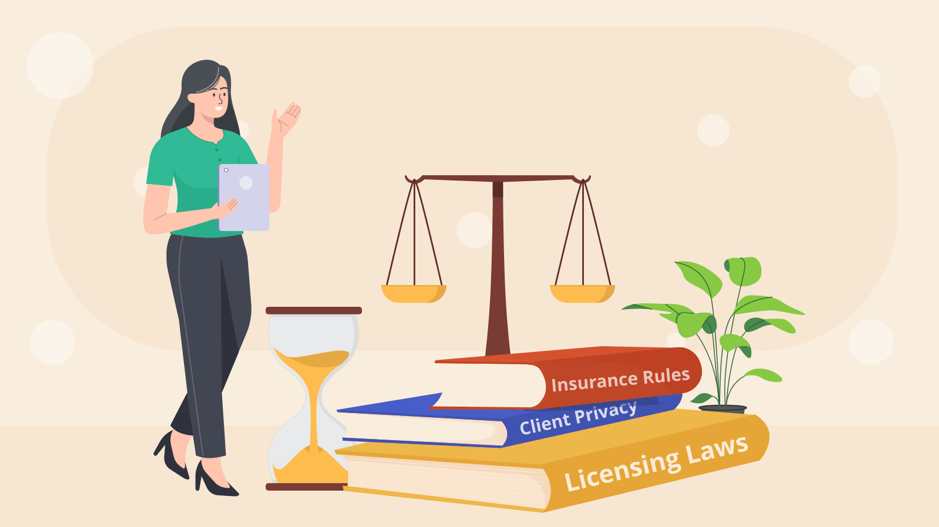Contents
Hidden recordings pose significant risks, both legally and in terms of their potential impact, for businesses and individuals. Trust plays a fundamental role in the workplace, ensuring that we can freely express ourselves without fear of consequences. When this trust is violated, it not only damages relationships but can also harm the reputation of the company. While it may be tempting to record a meeting, especially when discussing vital or intricate matters, it is crucial to obtain consent from all participants before pressing that record button. Upholding trust and respect is essential, given that there are often regulations and laws governing the recording of conversations.
In numerous jurisdictions, recording conversations without the knowledge of all parties involved is illegal. Hence, when it comes to business situations, the need to preserve accurate records must be balanced with adhering to the correct protocol. Generally, recording a meeting is permissible, provided everyone is aware of and consents to it. Realistically, it is highly unlikely that such recordings would be reviewed by anyone…

Legal And Ethical Rules Phone Recording for Business
If you understand the importance of call recording but don’t want to deal with legal consequences or loss of trust, you are on the right track. If you remain transparent when recording calls, you can win over customers and benefit from the recorded data. And it doesn’t matter so much whether you use a call recorder app iPhone or VoIP telephony. Moreover, the applications can provide incoming call recorders and outgoing calls. A call recorder like iCall can even perform the functions of an iPhone phone recorder. All this is available in free trial mode, which makes it possible to test the service.
It’s simple to assume that there is a universal rule for video call recording, but the reality is heavily influenced by location: the caller’s, yours, and the company’s. Though one may not be arrested for it, the regulations vary across different parts of the world.
USA
The Electronic Communications Privacy Act (ECPA) at the federal level permits any individual in a conversation to legally record it without notifying others, as it follows a “one-party consent” rule. Nevertheless, there exist variations at the state level. Several states, including California, Connecticut, Florida, Illinois, Maryland, Massachusetts, Montana, New Hampshire, Pennsylvania, and Washington, have implemented “two-party consent” laws. These laws mandate that all parties involved in the communication provide their consent to be recorded.
In the United States, where “one-party” consent may be legally adequate, companies often face an ethical choice: to prioritize transparency or to leverage the flexibility that the law allows. Ethical businesses generally choose transparency, acknowledging that trust, once broken, is challenging to restore. This is especially applicable in “one-party” states where the ethical standard is to inform all parties about recording, regardless of what the law permits. Such an approach demonstrates a commitment to ethical best practices, which promote trust and exemplify respect for individual privacy in all business interactions.
EU and UK
In the European Union, the General Data Protection Regulation (GDPR) establishes stringent privacy rights. It requires all participants to provide explicit consent before any recording takes place. The GDPR strictly enforces rules on the processing of personally identifiable information and imposes substantial fines for any breach.
After Brexit, the UK has its own Data Protection Act, which aligns closely with GDPR principles and directly integrates them. It mandates informing individuals about the recording and its purpose, as well as obtaining their consent, ensuring a high level of privacy protection.
Middle East
In the Middle East, the approach to call recording can differ extensively due to emerging regulations. Some countries impose stringent privacy laws that necessitate consent, while others may have a less defined or developing regulatory framework. Companies operating in this region must closely adhere to local laws and stay updated on evolving legal trends.
Ethical Reflections at the Global Level

Privacy and the principle of consent are universal ethical imperatives that transcend borders, although the legal specifics may vary across the globe.
Companies conducting international business would be wise to adopt a consistent and ethical approach to their recording policies, disregarding local legal minimums. This approach not only simplifies compliance but also reinforces a reputation for integrity and respect for personal rights.
Each region emphasizes the importance for businesses to not only be legally compliant but also operate with a global ethical perspective on privacy. Respecting the privacy rights of individuals is increasingly becoming a universal standard and a best practice that all companies should incorporate into their corporate policies.
Even if the country in which your colleague, prospect, or customer is based is not listed, it is worth investigating the local practices. Alternatively, consider implementing a robust version of some of the strictest protocols as a blanket policy.
Conclusion
Legal reasons for recording conversations do not equal ethical reasons. If a business uses available legal maneuvers, it may lose favor with clients, although it operates within the law. It’s best to be clear and understandable about whether you’re recording conversations and how you’re using that data. In this case, neither party will have any speculation or unjustified expectations.

